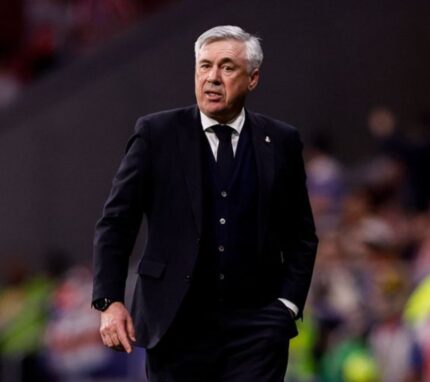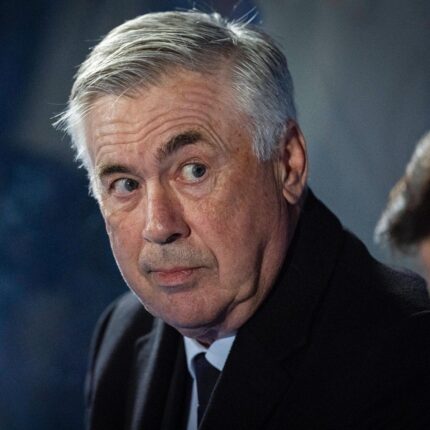The match between Albania and Spain’s in Euro 2024 showcased an array of pivotal moments right from the start. The fifth minute saw Albania earn an early corner, thanks to Jesús Navas conceding it. Despite this opportunity, Albania couldn’t capitalize on their advantage. By the ninth minute, Kristjan Asllani won a free kick in the defensive half after a foul by Martín Zubimendi, emphasizing Albania’s initial attempts to gain control.
Spain offensive strategy became evident by the 12th minute with Mikel Merino’s header, saved by Albania’s goalkeeper. Just a minute later, Joselu’s attempt followed suit, albeit missing the target. The match’s tempo increased as Ferran Torres broke the deadlock in the 13th minute. Assisted by Dani Olmo’s precise through ball, Torres’ left-footed shot found the bottom left corner, putting Spain ahead 1-0. This goal highlighted Spain’s efficiency and clinical finishing early in the game.
Spain’s Unyielding Pressure
Spain continued to mount pressure on Albania, dominating possession and creating multiple scoring opportunities. Despite Albania’s efforts to disrupt Spain’s rhythm with tactical fouls, the Spanish side remained composed and relentless. By the 21st minute, Dani Olmo attempted a long-range shot that narrowly missed, showcasing Spain’s willingness to test Albania’s defense from various positions.
Set pieces were a recurring theme, with Spain frequently earning corners and free kicks, reflecting their attacking persistence. The 26th minute saw Dani Vivian’s header from a corner narrowly miss the target, further emphasizing Spain’s threat from aerial duels. However, Albania’s defense managed to hold firm under continuous pressure, preventing Spain from extending their lead.
Spain’s attacking maneuvers were not limited to set pieces. Mikel Oyarzabal’s offside in the 31st minute and Ferran Torres’ missed header in the 41st minute exemplified their attempts to penetrate Albania’s backline. Despite these misses, Spain relentless pursuit of a second goal underscored their dominance throughout the first half.
Albania’s Resilient Defense
Albania’s defensive efforts were commendable, particularly in the face of Spain relentless attacks. Players like Ylber Ramadani and Kristjan Asllani were crucial in winning free kicks and breaking up Spain’s plays. The 42nd minute highlighted Ramadani’s defensive acumen, earning a free kick after a foul by Mikel Merino, indicating Albania’s strategic fouling to disrupt Spain’s flow.
The first half concluded with Albania showing resilience, despite being under constant pressure. Kristjan Asllani’s long-range attempt in the 45th minute tested Spain’s goalkeeper, offering a glimpse of Albania’s potential to counterattack. Additionally, Joselu’s missed chance in the 45th+1 minute underscored the narrow margins and intense competition between both teams.
In summary, the first half of this Euro 2024 match showcased Spain’s offensive prowess and Albania’s defensive resilience. Spain early goal by Ferran Torres set the tone, but Albania’s determined defense ensured the game remained tightly contested going into the second half.
Spain’s Tactical Mastery and Substitution Strategies
Spain’s strategic use of substitutions and tactical adjustments played a crucial role in maintaining their lead against Albania. The introduction of Robin Le Normand for Aymeric Laporte at the start of the second half aimed to reinforce Spain’s defensive line, ensuring they could stave off any offensive threats from the Albanian side. Le Normand’s presence brought fresh energy and a different dynamic to the defense, helping Spain keep their clean sheet intact.
As the game progressed, Spain continued to make calculated substitutions to maintain their dominance and manage the players’ fatigue. Notably, the double substitution in the 62nd minute, which saw Fermín López replace Mikel Oyarzabal and the subsequent changes in the 71st minute, bringing in Lamine Yamal and Álvaro Morata, indicated Spain’s intent to inject new attacking impetus. These changes not only provided fresh legs but also diversified Spain’s attacking options, keeping Albania on their toes.
Missed Opportunities and Defensive Resilience
Both teams showcased a series of attempts that highlighted their determination and attacking prowess, though not all efforts bore fruit. Early in the second half, Joselu’s left-footed shot narrowly missed the target, a close call that underscored Spain’s aggressive approach right from the restart. Mikel Oyarzabal’s subsequent attempt, saved by the Albanian goalkeeper, further demonstrated Spain’s relentless pursuit of a second goal to secure their lead.
Albania, on the other hand, did not shy away from taking shots at the Spanish goal. Kristjan Asllani’s blocked shot and Armando Broja’s saved effort were testament to their perseverance. Despite their numerous attempts, including several close misses by Kristjan Asllani and Medon Berisha, the Albanian side couldn’t find the back of the net. Spain’s defense, bolstered by timely blocks and saves, played a pivotal role in ensuring that Albania’s attempts remained fruitless, showcasing their defensive resilience.
Discipline and Fouls: Managing the Game’s Tempo
The match saw a fair share of fouls and disciplinary actions, which were crucial in controlling the game’s tempo and maintaining the competitive edge. Spain’s Mikel Merino committed several fouls, one of which led to a free kick for Albania in the 48th minute, and another significant foul by Dani Vivian in the 90th minute resulted in a yellow card. These fouls, while tactical, also reflected the intense nature of the match as Spain worked to disrupt Albania’s rhythm.
Albania, too, had their moments of physicality, with Nedim Bajrami receiving a yellow card for simulation and Medon Berisha also seeing yellow for a bad foul in the 89th minute. These infractions, while highlighting the competitive spirit, also served as strategic pauses that both teams utilized to regroup and adjust their tactics. The careful management of these moments by the referees ensured that the match remained fair yet intense, contributing to the overall narrative of a closely contested encounter.
In summary, Spain’s tactical substitutions, defensive resilience, and strategic management of fouls were key elements that secured their 1-0 victory over Albania. Despite numerous attempts by both sides, Spain’s ability to adapt and maintain control underlined their prowess and strategic acumen on the field.














